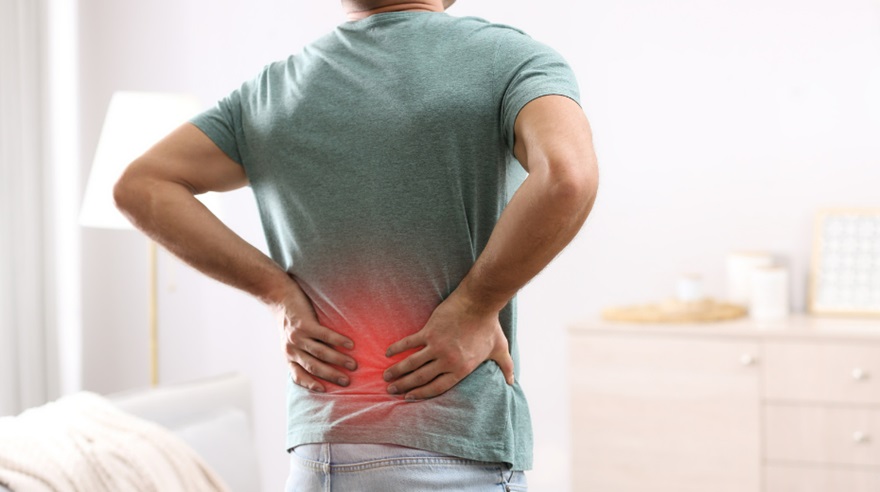Herniated discs can cause significant discomfort and pain, impacting daily life and activities. Fortunately, there are various methods to alleviate pain caused by this condition. The following five tips will help ease the distress caused by herniated discs and improve overall quality of life.
1. Maintain a Healthy Posture
Practicing good posture is essential in reducing strain on the spine, particularly the lumbar region – where herniated discs often occur. Focus on sitting and standing straight, keeping your shoulders back and your head aligned with your spine. Proper support, such as ergonomic chairs or lumbar rolls, can also assist in maintaining a healthy posture.
2. Exercise Regularly
Regular physical activity can help strengthen your muscles, particularly those supporting the spine, aiding in the prevention and relief of herniated disc pain. Engaging in low-impact exercises like walking, swimming, and yoga can help minimize additional stress on the affected area while also providing physical benefits. To seek professional guidance, consult an experienced doctor for herniated disc treatment in Chicago who can recommend the best exercises for your condition.
3. Stretch and Strengthen
In addition to regular exercise, incorporating stretching and strengthening routines can help increase flexibility and reduce pressure on the affected discs. Focus on exercises targeting the back, abdomen, and hip muscles to provide better support to the spine. A healthcare professional specializing in spinal health can provide customized recommendations tailored to your individual needs.
4. Apply Heat or Cold Therapy
Heat and cold therapy can offer temporary relief for herniated disc pain. Applying a heating pad or taking a warm bath can help relax muscles and increase blood flow to the affected area, providing pain relief. Intermittently applying cold packs to the painful region can help reduce inflammation and numb the area, providing additional relief. Alternating between the two therapies can be beneficial; however, it is important to use them cautiously to avoid skin irritation or damage.
5. Seek Professional Treatment
While at-home remedies can help alleviate some discomfort, consulting a medical expert can be beneficial to properly diagnose and manage your condition. Healthcare professionals can provide personalized treatment plans, including medication, physical therapy, or even surgery for severe cases. Seeking expert advice can help manage pain and prevent further complications effectively.
Difference Between Bulging Disc and Herniated Disc
Although often used interchangeably, bulging discs and herniated discs are two distinct conditions. Both bulging and herniated discs occur when the soft inner portion of a spinal disc protrudes through its exterior, compressing nearby nerves and causing pain. You may also check out this blog to learn more about the difference between a bulging disc and a herniated disc.
In conclusion, relieving pain from herniated discs is achievable through a combination of self-care techniques and professional treatments. Maintaining a healthy posture, exercising regularly, stretching, and knowing the top tips to reduce your risks for a herniated disc can help alleviate pain and prevent further complications. Ultimately, consulting a healthcare professional is crucial in determining the best course of treatment for your specific condition. With proper care and management, individuals with herniated discs can experience significant relief and improved quality of life.





